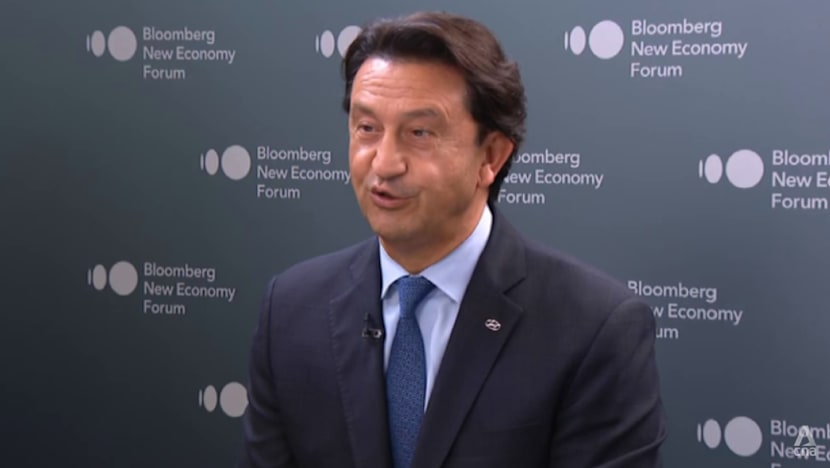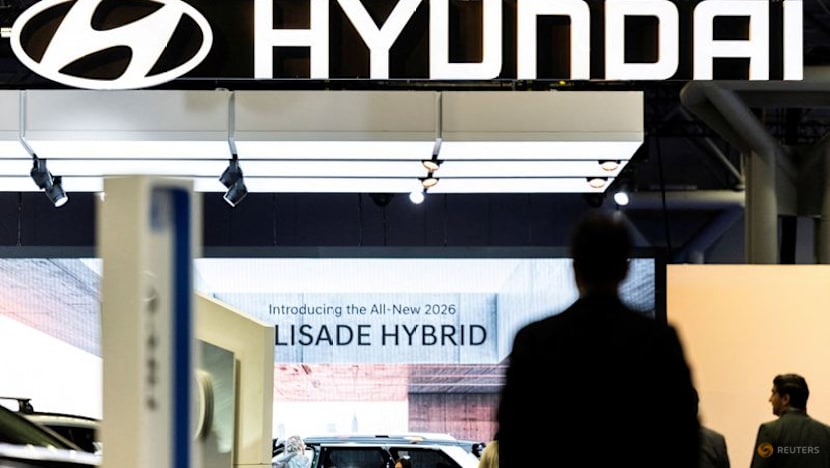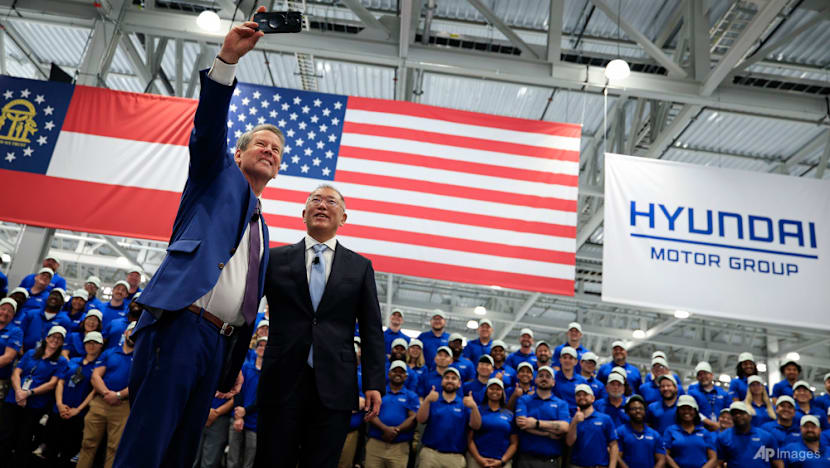Hybrids are outrunning EVs – but only for now: Hyundai CEO
South Korea’s largest automaker is charging ahead with its ambitious electrification goals, betting big on EVs while maintaining a strong foothold in hybrids.

Hyundai Motor CEO Jose Munoz speaks during an interview with CNA's Roland Lim.

This audio is generated by an AI tool.
SINGAPORE: Hyundai expects hybrid cars to continue outselling battery-powered models in the near term, even as South Korea’s largest automaker accelerates its long-term push to strengthen electric vehicle (EV) development.
Hyundai Motor’s chief executive officer Jose Munoz told CNA that while EVs remain central to the company’s future, hybrids are enjoying strong momentum today.
“Hybrids are very well accepted. Some months we grow 60 per cent, other months 80 per cent. The issue we have is the (lack of) supply. If we could supply more, we could sell more,” he said.
Hybrids remain popular in markets where infrastructure and policy gaps slow the transition to full electrification, particularly in Central and South America, and parts of Asia.
Last quarter, the auto giant sold 158,629 hybrids – nearly twice as many as its 87,737 battery-operated vehicles.
SHORT-TERM HYBRID GROWTH, LONG-TERM EV BET
However, Hyundai expects demand for hybrids to taper off in the longer term as EV technology advances.
“Hybrid is today. EVs maybe a little bit more (in) the future,” Munoz said.
“We believe that EV technology is going to remain a very relevant one. We think that hybrids and plug-in hybrids are going to grow slightly less in the future than EVs and EREVs.”
Extended-range electric vehicles (EREVs) are EVs with a small internal combustion engine that acts as a generator to extend driving range when the battery runs low.
Still, the company sees value in offering a full mix of technologies to meet consumer demand and regulatory shifts.
In September, Munoz unveiled Hyundai’s 2030 strategy, under which two-thirds of the company’s global sales will be electrified – including EVs, EREVs, hybrids, plug-in hybrids and fuel cell vehicles.
The automaker has set a target of 5.55 million annual global vehicle sales by the decade’s end, with electrified models making up 60 per cent of that total.
It aims to strengthen its position in the global mobility race through strategic product expansion, electrification technologies and software capabilities.
Hyundai expects significant growth in North America, Europe and South Korea.

SCALING GLOBAL PRODUCTION
To meet growing demand, Hyundai has been expanding its manufacturing footprint.
In China, it recently unveiled the electric Hyundai Elexio, tailored for the Chinese market.
The mid-sized SUV was produced under the “In China, For China, To Global” strategy, in which brands develop models for the large Chinese market before adapting and launching them internationally.
Plans are underway for Elexio to be exported to other markets such as Australia.
“We need to remain competitive in each individual market, particularly in China. We have decided to triple down (with the launch of) three new EV products … to be able to compete with the Chinese domestic manufacturers,” Munoz said.
“But for the most part, we are localising in almost all markets. We are observing (and) taking different actions depending on (each) market.”

In March, the automaker officially opened a US$7.6 billion plant near the port city of Savannah in Georgia, United States. There, Hyundai plans to produce 500,000 vehicles annually, dedicated to electrified models.
The company said the localisation effort has paid off, with North America now posting the fastest growth in electrified models among Hyundai’s major regions.
Hyundai aims to manufacture more than 80 per cent of vehicles sold in the US domestically within the next five years.
Globally, it plans to accelerate annual production capacity by an additional 1.2 million units by 2030.
INVESTING IN NEXT-GEN TECH
Beyond vehicles, Hyundai continues to broaden its technology base.
The company on Monday announced a US$85.8 billion investment in South Korea over the next five years, with a “significant portion” going into artificial intelligence technologies, robotics and advanced chips.
“We are a technology company that happens to sell cars,” Munoz said.
“(Hyundai has) invested billions of dollars … to power our AI capabilities, (which would) bring to the market better cars. (We are) very product (and) technology competitive. We are very well positioned. We need to continue to invest to create a better future.”
Munoz spoke to CNA on Wednesday (Nov 19) on the sidelines of the Bloomberg New Economy Forum in Singapore.
The Nov 19 to 21 event brings together policymakers, industry executives and thought leaders from across the world to discuss solutions to global challenges.

















